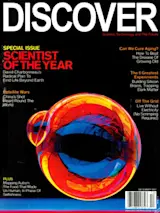Nicolaus Copernicus pioneered the concept of a heliocentric solar system, right? Wrong. Many other astronomers—going back to Aristotle’s time—had proposed the theory. But Copernicus was the first to support it mathematically, according to Jack Repcheck in Copernicus’ Secret: How the Scientific Revolution Began (Simon & Schuster, $25).
In his highly readable book, aimed at lay readers who know little about the history of astronomy, Repcheck draws a portrait of an unusual star of the scientific revolution. Copernicus was not a very focused student: He entered the university four years later than the average student and took nine years longer to graduate. He came from a wealthy family and felt no need to make a name for himself. “Copernicus should have stood no chance of making even a minor mark in astronomy,” Repcheck writes.
Although Copernicus studied astronomy at the University of Kraków in Poland and the University of Bologna in Italy, he did not pursue it as a living. Instead, he worked as a tax collector for the Catholic Church and as a village medic.
He seemed to have little desire to publish his work. After presenting his heliocentric hypothesis in a 1514 letter to intellectual colleagues, he resisted publishing the manuscript for On the Revolutions of the Heavenly Spheres for decades, fearing that his work would lead to professional ridicule and “controversy” among the masses. He wanted to make the book so spare that only masterful mathematicians could deduce his conclusions. Even when church officials—who, contrary to legend, approved of Copernicus’s findings—asked him, according to Repcheck, “with the utmost earnestness” to publish his book and offered to pay his expenses, Copernicus refused.
Despite the absence of a book, rumors of Copernicus’s ideas spread throughout Europe. He declined to comment publicly or release his proofs until 1543, after a young mathematician admirer persuaded him to publish. According to a witness to Copernicus’s death, he took his last breath after seeing a published copy of On the Revolutions for the first time. “One hopes,” Repcheck writes, “that he had at least a glimmer of the ultimate impact of his achievement as he lay on his bed after his stroke in the winter of 1543, waiting to meet his God, whose beautiful creation he had seen more clearly than any human before him.”
Copernicus’ Secret is a lucid biography of a complicated man who paved the way for the scientific revolution against the odds—and somewhat against his will.














